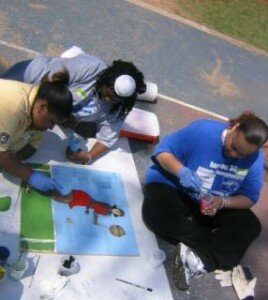 Effectively evaluating your volunteer program is important to ensuring the completion of your organization’s service goals. Evaluations can be done as often as necessary, but they should be a part of your volunteer program.
Effectively evaluating your volunteer program is important to ensuring the completion of your organization’s service goals. Evaluations can be done as often as necessary, but they should be a part of your volunteer program.
An evaluation provides data to make critical decisions about a program to better a volunteer program or experience. This data can also be used to tell the organization’s story and how it engages its volunteers. Evaluations can analyze goals, outcomes, or the actual program.
How can your organization conduct an informative evaluation? Check out our 10 steps, below to properly perform a volunteer program evaluation.
1. Recruit an evaluation team: In order to recruit an evaluation team, determine how many people you will need to complete this process. You should also decide what skills these people will need and how much time should be devoted to the evaluation process.
2. Identify your purpose: Your evaluation team and other employees should understand why you an evaluation is being conducted in the first place. This decision should have goals to be reached through this process. Decide what your organization will do with this data, once it is collected.
3. Connect the program evaluation with the organization’s goals: It should be determined through the  evaluation, whether or not the program is supporting the organization’s goals.
evaluation, whether or not the program is supporting the organization’s goals.
4. Identify and utilize resources: How can your organization support the evaluation process? Determine what this process will require and how your organization can meet those requirements. How will your organization use this data in the future?
5. Identify interest points: The evaluation will have a target audience, whom you are conducting this evaluation for. How will this information be useful to them?
6. Identify the audience: Who will be using this data? The results should be written in a style that is understandable for the target audience to utilize in the future.
7. Design the evaluation:
a. What type of evaluation will you use to achieve the desired outcome? Will it be goal-based, process-based, or outcome-based?
b. Identify the necessary information
c. The evaluation methods to be used.
d. The instrument that will be used to conduct the data collection.
e. Test the evaluation to determine it effectiveness.
8. Conduct the evaluation: Collect the necessary data to ensure effective results. The means with which you conduct your evaluation are based upon the data you wish to obtain. Whether you use surveys, questionnaires or interviews, it will be based upon the necessary results.
9. Analyze results and interpret data: Depending on the type of data, analyze it to determine the necessary next  steps for your program.
steps for your program.
10. Communicate results: Share your results with your target audience to determine the next steps for your program.
After your results are collected, your organization can determine a variety of conclusions including program success and volunteer retention rates.
How does your organization conduct evaluations? We would love to hear your tips and suggestions in the comments section below!


